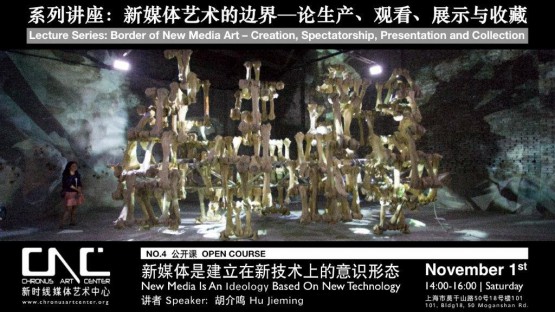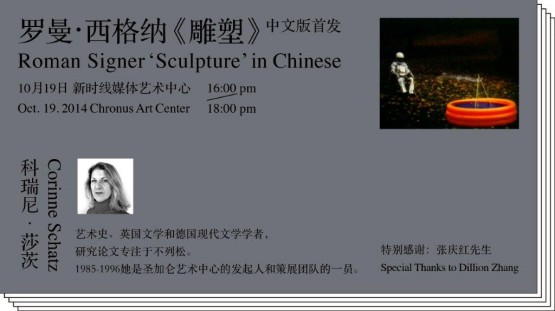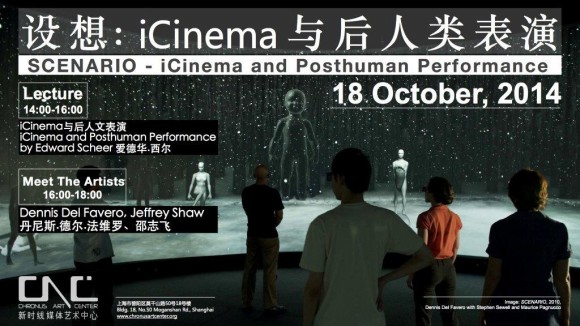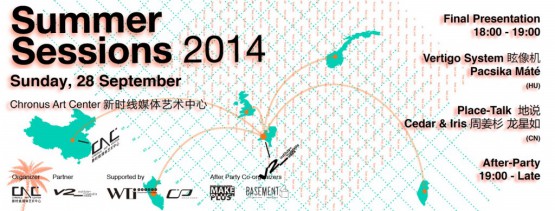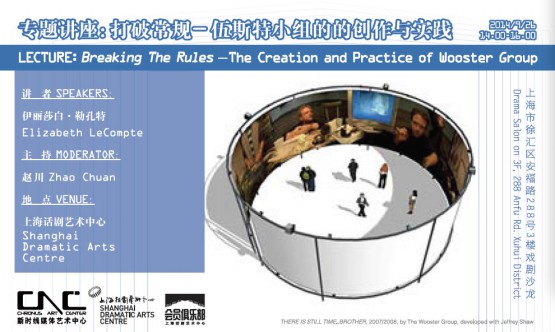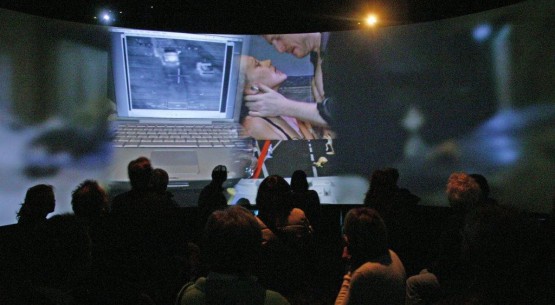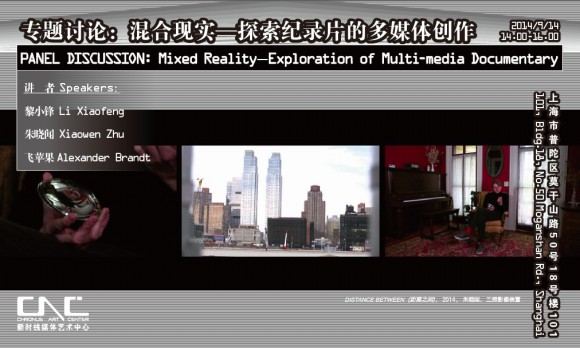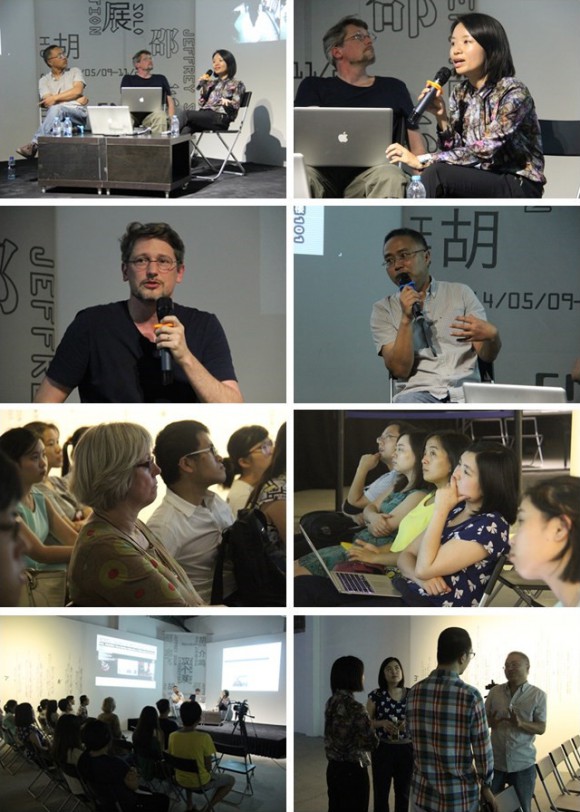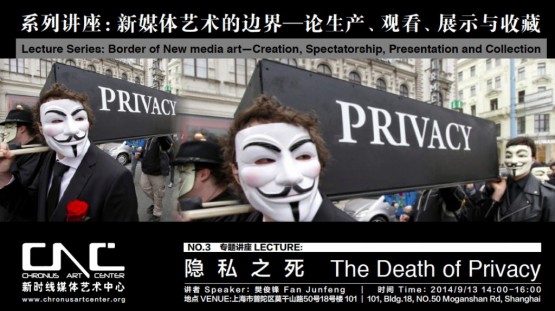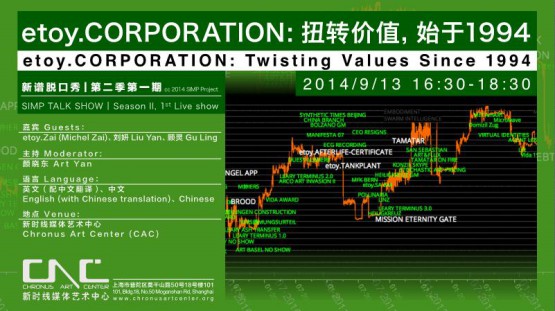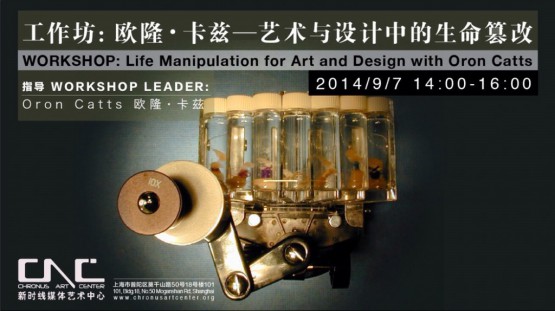Guest: Hu Jieming, Lu Xinghua, Zhao Qianfan
Date: 2014-11-01 14:00 ~ 2014-10-01 16:00
Address: Chronus Art Center (Room101, Bldg18, NO.50 Moganshan Rd, Shanghai)
Reservations via membership@chronusartcenter.org (please supply your full name, contact information, and the number of people attending)
ABOUT THE OPEN COURSE:
ABOUT THE LECTURES SERIES:
On the Borders of New Media Art: Creation, Spectatorship, Presentation, and Collection
New media art is generating a new sociality and reaching beyond our contemporary understandings of artistic theory and basic approaches, indicating ways to interpose into reality and history, providing a more general attitude towards political intervention, suggesting the total reform of the traditional art museum, creating different modes of observation, and so on. A great number of practices encourage us to reflect on methodology and epistemology. However, the arrival of a new mode of creation and exhibition is truly pushing us to face and summarize it in theory and practice.
Through a series of discussions, art theorists, philosophers, new media artists, and associated professionals engaged in the exhibition of new media art will be invited to launch a train of discussions addressing the core concepts of new media theoretical research, including distraction, consumption, contribution, solo, chat & curiosity, gossip & imitation, new comics, the re-criticism of Internet values, resistance & surveillance, the technological subconscious of semi-group, the fan economy, etc. In the lectures and discussions we are trying to explore and generalize some underlying prerequisites of theory and the principles of practice in new media artworks and their exhibition.
ABOUT HU JIEMING
Hu Jieming, was born in 1957 in Shanghai. He is one of the pioneers of digital media and video installation art in today's China. For more than two decades, Hu continuously conducts creation and experimentation via a variety of media including photography, video and digital interactive technologies. His works are widely exhibited.
ABOUT ZHAO QIANFAN
Zhao Qianfan (1977–), Associate Professor in Philosophy, Tongji University, 2008–2009, German Chancellor Scholar of Alexander von Humboldt Foundation, in Philosophical Seminar, Hamburg University. 2013-2014, Visiting Scholar in Institute for Philosophy, Humboldt University in Berlin. Research fields: Frankfurt School (especially Adorno and Benjamin), Nietzsche, Mimesis theory.
ABOUT PLANNER OF THE LECTURE SERIES:
Lu Xinghua teaches at School of Humanities of Tongji University and at the Center of Social Thought and Contemporary Art, China Academy of Art. His research interests go across modern Chinese politics, aesthetics and Chinese contemporary art since 1985. He was member of acting committee for 2010 Shanghai Biennale. His recent works include Against Claims from Contemporary Art (2012) and The Future of Political Art (2014).

